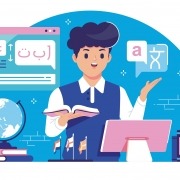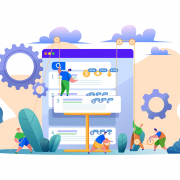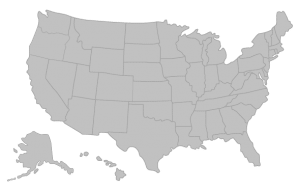Translators Save Lives When Tragedy Strikes
What happens in the face of a catastrophe? What happens when a hurricane is blowing, a tsunami is rolling, or an outbreak is occurring? When natural or man-made disasters are predicted, warnings are what usually happen. Warnings often come from those in authority who know what is about to transpire so that people who might be affected by the disaster can protect themselves. But sometimes, these dire warning can fall upon ears that don’t understand what is happening due to a language barrier. Professional translators and interpreters are critical partners that disaster planning services can work with to save lives.
Before the Disaster: Warnings and Advisories
There has been a rash of recent weather-related disasters in the United States in areas where many people don’t speak English as a first language. When Hurricane Irma was heading for Miami-Dade County in Florida, The Atlantic reports that it was headed for a community where “72.8% of the area’s population speaks a language other than English at home.” The county paired with translating service Translators Without Borders to get the word out to as many as possible. This organization is a non-profit that coordinates professional translation services from volunteer professionals. As the county continues to explore how to provide warnings and advisories in other languages, they find that they still have some work to do.
Thankfully, translating systems have come a long way since Hurricane Katrina in 2005. In Gulfport, MS, it was reported that “evacuation updates never went out in Spanish or in Portuguese” and “as a result, 70 to 80 limited-English-proficient people didn’t know they needed to leave and died” (The Atlantic).
After the Disaster: Recovery Efforts
When it comes to recovery efforts after the disaster and giving aid to those who have been hurt or injured, translators can be the difference between life and death in some cases. In order to understand how to help someone, doctors must know what is wrong with them. If someone has an allergy to a medication, medical staff must know that in order to provide the correct treatment.
Currently, Translators Without Borders has a database that explains how to ask basic questions such as “Are you okay?” or “What hurts?” and the most important “Do you need help?” in a few languages based on past disasters they have faced. It’s called translation memory and it collects prior translations they have encountered during other disasters such as Hurricane Matthew and Typhoon Haiyan. They continue to add to the database as disasters occur.
Protecting Your Business
Though lack of proper translation in business does not often lead to loss of human life in many industries, poor translations can certainly be the difference between the life and death of a company. If you can’t globalize your business, you can easily stagnate and fail to thrive—or survive. At ITC Global Translations, we know that you have invested a lot in your business, and we’ll do anything we can to help you keep it going. We know what technology you need for all of your projects. Plus, we can create a translation memory for your projects to ensure more consistent and efficient translations. Contact us to see how we can work for you before your next disaster strikes.





















Leave a Reply
Want to join the discussion?Feel free to contribute!